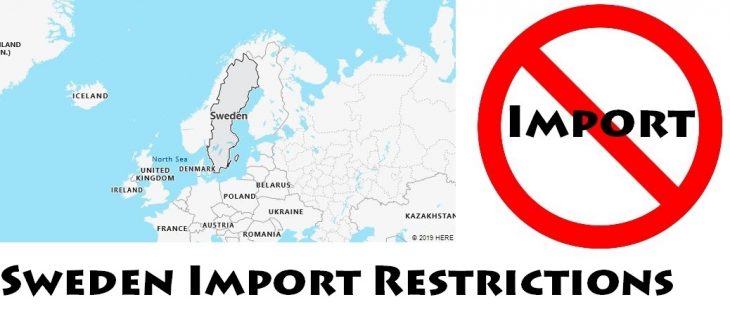Sweden Import Restrictions
In order to enter Sweden, certain goods are subject to specific controls and, regardless of their value and quantity, they require the consent of Sweden government, preferably, license must be obtained prior to passage through the customs, preventing the goods from being retained. On this page, you will see what kinds of items are prohibited from entering the Sweden, and which items need special documentation before exporting to Sweden.
Import regulations
Sweden requires an import permit for many goods. Before posting any item, senders should confirm that the addressee has any necessary permit. Senders should determine import restrictions from Swedish authorities before posting:
- Alcohol and spirits
- Animal and animal products
- Pharmaceutical products
- Plants and plant products
- Plastic and rubber products
- Strong beer
- Weapons
- Wood and wood products
Gifts
There is no customs duties for a gift from a private person abroad to a private person in Sweden, except for wines, spirits and tobacco, if the value of the gift does not exceed 400 Kronor.
Special documentation requirements
Commercial goods require a certified invoice.
Prohibitions
Items prohibited by Dangerous and Prohibited Goods & Packaging Post Guide and ECI International Courier Regulations.
- Alcoholic beverages
- Animals,m live
- Organic chemicals
- Printed books, newspapers and pictures- offensive by nature
- Payment instruments
- Pearls, precious stones and metals
- Seeds
- Securities of any kind payable to bearer, etc
- Wood and articles of wood
- Vegetables














































